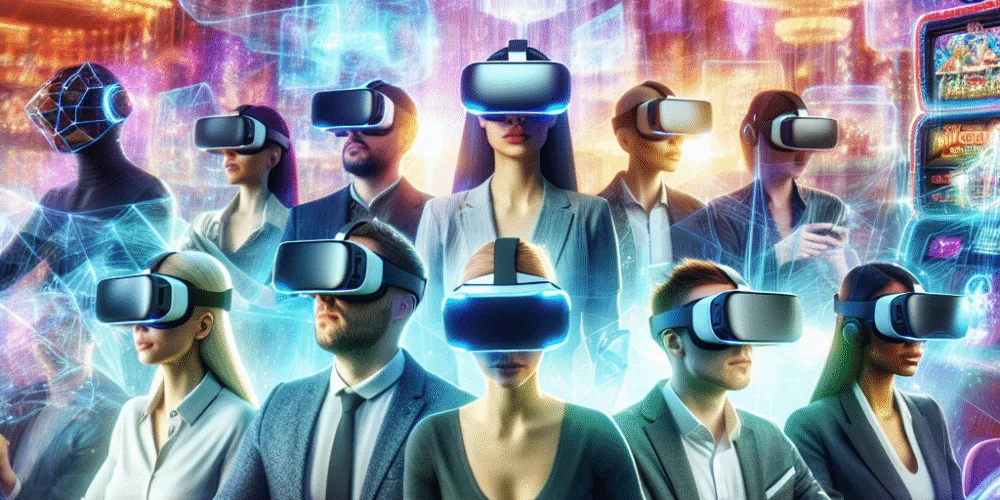In recent years, the intersection of technology and gaming has birthed innovations that continuously redefine entertainment boundaries. Among these developments, Virtual Reality (VR) stands out, particularly in the casino sector. This immersive technology has not only transformed traditional gaming experiences but has also established Virtual Reality casinos as a burgeoning trend in both the digital and gambling worlds.
Virtual Reality casinos replicate the thrilling atmosphere of traditional casinos, enabling players to walk through digitally constructed casino floors, interact with other players, and engage in real-time gaming actions. As technology advances and VR headsets become increasingly accessible, VR casinos are expected to revolutionize online gambling by offering a more interactive and engaging user experience.
Immersive Gaming Experience
The core advantage of VR casinos lies in their ability to provide a fully immersive experience. Players can use VR headsets, such as Oculus Rift, HTC Vive, or Sony PlayStation VR, to enter a virtual world that mimics the layout and environment of a physical casino. From the sound of slot machines to the soft music playing in the background and the chatter of fellow gamblers, every detail is designed to create an authentic atmosphere.
Furthermore, VR casinos cater to all types of casino enthusiasts. Whether it’s spinning the roulette wheel, joining a poker table, or playing slots, each game is enhanced by VR’s ability to simulate real-life actions. Players can interact with cards, chips, and even converse with live dealers and other players at the table, making the virtual experience as close as possible to the real one.
Expanding Accessibility and Social Interaction
One of the key trends in VR casinos is the focus on social interaction. Unlike traditional online casinos where interaction is limited and oftentimes impersonal, VR allows players to engage directly with each other, enhancing the social aspect of gambling. Players can meet new people, share tips, or simply enjoy a game together, just as they would in a physical casino.
Additionally, VR casinos are becoming more accessible. As VR technology evolves, the cost of VR headsets is decreasing, making it easier for more people to access VR casinos from the comfort of their homes. This level of accessibility is crucial for the expansion of the VR casino market, as it opens up a new realm of possibilities for users worldwide who may not have the means or desire to visit a physical casino.
Economic Implications and Ethical Considerations
The potential economic impact of VR casinos is significant. They offer a new avenue for revenue generation within the gambling industry, attracting both seasoned bettors and newcomers intrigued by the novelty of VR. For developers and technology providers, this is a ripe market for innovation, pushing them to continually enhance user experience with better graphics, more interactive features, and smoother gameplay.
However, alongside economic prospects come ethical considerations. The immersive nature of VR gambling raises concerns about promoting addictive behaviors more intensely than traditional or other online forms of gambling. Regulatory bodies and developers are therefore challenged to find a balance between innovation and responsible gambling practices. Ensuring features like time limits, reality checks, age verification, and resources for gambling addiction are integrated into VR casinos is essential.
Looking Ahead
As we look to the future, the trajectory of VR casinos depends largely on technological advancements and regulatory frameworks. Continued innovation in VR technology will likely enhance the realism and appeal of these platforms, potentially leading to wider adoption.
Moreover, as regulations catch up to technological advancements, the gambling industry could see a standardized approach to VR gambling, which would help in mitigating risks associated with gambling addiction and ensure a safe environment for users.
In conclusion, the rise of VR casinos marks a significant shift in both the gaming and gambling industries. It not only represents a technological leap in how we experience games but also poses new challenges and opportunities for players, developers, and regulators alike. As this trend continues to evolve, it will undoubtedly reshape the landscape of gambling entertainment, promising a future that is as exciting as it is uncertain.

David Farbacu is a seasoned writer with a passion for games, gaming, casinos, and Xbox. With a wealth of experience in the industry, David brings insightful reviews, comprehensive guides, and engaging articles that cater to both casual gamers and hardcore enthusiasts. His expertise spans across various gaming platforms and genres, making him a go-to source for the latest trends and developments in the gaming world.

